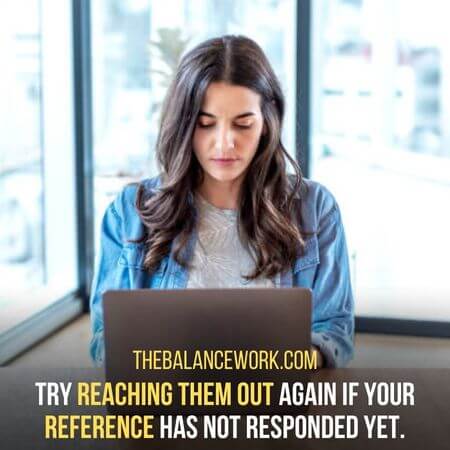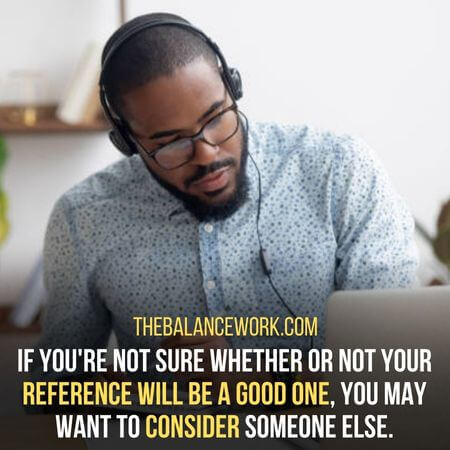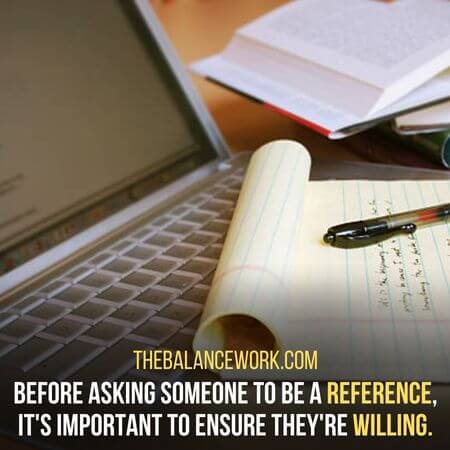What to do when your references don’t respond? For starters, don’t panic. It’s not the end of the world. And it doesn’t necessarily mean that your references don’t want to help you.
There are several reasons why your references might not be responding. And there are several things you can do to get them to respond.
What To Do If Your References Don’t Respond? 12 Possible Solutions
We will share some scenarios in which your references might not respond. And here are some tips on what you can do in each case.
1. They Didn’t Get Your Message:
This is probably the most common reason why your references don’t respond. It’s easy to assume that they got it just because you sent a message. But that’s not always the case.

There are several reasons why your message might not have been received. For example, maybe they didn’t check their email regularly. Or maybe the email went to their spam folder.
The best thing you can do in this case is to try reaching out again. Send them a follow–up message, and include your phone number.
That way, they can contact you if they have any questions. And if you don’t hear back from them after a few days, you can try calling them.
2. They’re Busy:
Another possibility is that your references are just busy. Maybe they’re working on a big project at work or taking care of personal matters.
In this case, it’s best to give them some time and try reaching out again in a week or two. They’ll hopefully be able to get back to you then.
They will be more likely to respond at a specific date or time if they are truly busy.
Try to be understanding and give them the space they need.
When you reach out again, you could say, “I hope you’re doing well. I know you’re busy, so I’ll try reaching out again in a couple of weeks.”
Although waiting to hear back from your references can be frustrating, try to be understanding. They’re doing you a favor, after all.
3. They Don’t Remember You:
It’s also possible that your references don’t remember you. This is especially true if it’s been a while since you’ve spoken to them. Or if you didn’t have a close relationship.
If this is the case, your best bet is to provide a refresher. Send them an email with:
– Your contact information
– A summary of who you are
– And why you’re reaching out.
You could say, “I know it’s been a while since we’ve spoken. But I’m reaching out because I’m applying for a new position.
And I would be honored if you would be one of my references. I’ve cc’d my resume so you can refresh your memory on my qualifications.”
If you still don’t hear back, move on. There are plenty of other people who would be happy to help you out.
There are some reasons why your reference might not be available when you need them. For example, maybe they’re out of town.
Or they’re taking a much-needed vacation. If this is the case, ask if there’s someone else they recommend you speak with.
You can also try reaching out to them again at a later date. Some people are just better at responding to emails than others.
And some reply in person or over the phone more readily. Your references are there to help you. But ultimately, it’s up to you to ensure you have the contact information you need. And that your references are available when you require them.
5. They’re Not Willing:
If you feel that your reference is unwilling to help you, it’s probably best to move on.
You don’t want to put someone in the position of writing a letter of recommendation if they’re not comfortable doing so.
It will only reflect poorly on you in the end. And some people are just naturally more private than others.

They may not be comfortable sharing their thoughts about you with a potential employer.
6. You’re Not Close Enough:
It’s generally best to ask someone who knows you well for a letter of recommendation.
If you’re not close enough to the person, they may be unable to write a strong letter on your behalf.
In this case, it may be best to ask someone else. Your letter will be more credible coming from someone who knows you well.
You may either want to try to get to know the person better. Then they can write a strong letter,
or you can look for other options.
7. They’re Not Who You Thought They Were:
This scenario is more common than you might think. Perhaps you’ve been out of touch for a while, and your old boss has moved on to a different company.
Or maybe you’ve been working with someone for a while. And they’re just not as competent as you thought they were.
If this is the case, it may be best to ask someone else for a letter of recommendation.
Some people are just not good at writing them. And that’s okay. You don’t want a mediocre letter of recommendation anyway.
8. They Don’t Write Good Letters:
This is another case where it may be best to ask someone else for a letter of recommendation.
There’s no shame in admitting that the person you asked doesn’t write good letters.
It’s better to have a strong letter from someone who can write well. They may not be responding because they’re not sure what to say. Or they don’t want to write a bad letter.
You can help them out by giving them a list of your accomplishments. Or you can find someone else who will write a better letter.
9. Your Relationship Ended on Bad Terms:
Did you leave your last job on bad terms? If so, your old boss may not be thrilled to write you a letter of recommendation.
They may have forgiven and forgotten. But it’s also possible they haven’t. So why take the chance?
It’s better to find someone else to write your letter. Someone who can vouch for your work ethic and skills.
They’ll be more likely to write a positive letter if they don’t have to mention your departure.
10. You Didn’t Give Them Much Notice:
If you quit without notice, your old boss may not be too happy with you. So they may not be willing to write you a letter of recommendation.
Some bosses are more understanding than others. But it’s always best to give them as much notice as possible.
This way, they can find someone to fill your position. And they won’t have to write your letter themselves.
You may be able to get a letter from your old boss if you explain the situation. And if you offer to help with the transition. But don’t count on it.
It’s always best to have another reference, just in case.
11. You Weren’t There For Long:
If you only worked at a place for a short time, your old boss may not remember you.
Or they may not be willing to write a letter to someone they don’t know well.
In this case, you may better ask a co–worker or someone who knows you well.
When asking for a reference, give them as much information about the job as possible.
The more they know, the easier it will be for them to write a letter. It will be well–tailored to what the employer is looking for.
12. Are They A Good Reference?:
Not all references are equal. If you’re not sure whether or not your reference will be a good one, you may want to consider someone else.

A bad reference can do more harm than good. If you’re unsure, ask the person if they would feel comfortable writing the reference.
If they say no or hesitate, it’s probably best to find someone else.
How To Ask For A Reference?
The best way to ask for a reference is in person. This way, you can gauge their reaction. And you can understand how they feel about writing a letter to you.
If you can’t meet in person, the next best option is to call them. This way, you can at least hear their voice.
Here are the tips to help you ask for a reference:
1. Explain Why You Need A Reference
Here you need to be concise. The person you’re asking is busy. They don’t have time to hear your life story.
Simply state the purpose of why you need a reference. For example, “I’m applying for a job, and I need a reference.”
Or, “I’m applying to graduate school and need a reference.”
2. Describe The Type Of Reference You Need
There are two types of references: professional and personal.
A professional reference is someone who can speak to your work experience. A personal reference is someone who can speak to your character.
Most of the time, you’ll need a professional reference. But, there are some situations where a personal reference might be more appropriate.
Personal references are common for jobs that involve working with the public. Such as customer service or sales.
3. Ask If They’re Willing To Give You A Positive Reference
Before asking someone to be a reference, it’s important to ensure they’re willing.
Some people may not feel comfortable giving you a positive reference. For example, if you didn’t get along with them or didn’t do a good job at the position.

It’s best to ask someone you know will give you a positive reference. Otherwise, it might not be worth asking them.
You can say, “I’m applying for a job that I’m excited about. Would you be willing to give me a positive reference?”
4. Send Them A Reminder Email A Few Days Before You Need The Reference
Once you’ve asked someone to be a reference, staying in touch with them is important.
A few days before you need the reference, send them a reminder email. In the email, include the following:
– The date you’ll need the reference
– The name of the company you’re applying to
– The position you’re applying for
– Your resume
– A list of talking points (about your skills, experience, and qualifications)
Final Word:
What to do if your references don’t respond can be a difficult situation. However, following the tips above can increase your chances of getting a response.
Start by sending a reminder email a few days before you need the reference. Then, have follow-up if your reference does respond.
Finally, don’t be afraid to ask for help from others in your network to be your reference.
Last Updated on 2 days by Shahzaib Arshad
- Why Does My Boss Wink At Me? 6 Potential Reasons - October 5, 2023
- Is It Legal For Your Employer To Call Your Doctor? No, But… - October 4, 2023
- 12 Ways To Deal With A Low IQ Person - September 22, 2023